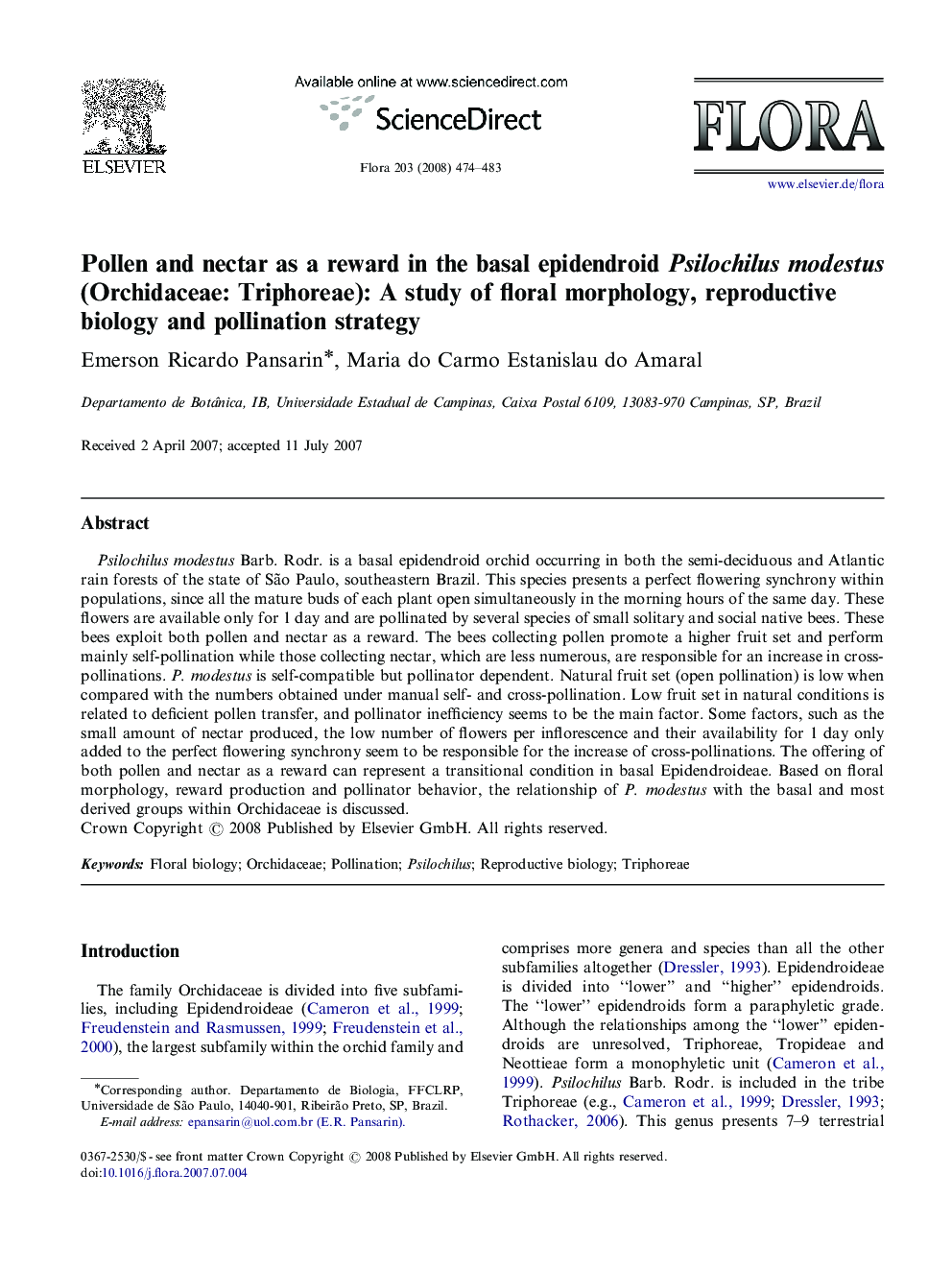| Article ID | Journal | Published Year | Pages | File Type |
|---|---|---|---|---|
| 2180151 | Flora - Morphology, Distribution, Functional Ecology of Plants | 2008 | 10 Pages |
Psilochilus modestus Barb. Rodr. is a basal epidendroid orchid occurring in both the semi-deciduous and Atlantic rain forests of the state of São Paulo, southeastern Brazil. This species presents a perfect flowering synchrony within populations, since all the mature buds of each plant open simultaneously in the morning hours of the same day. These flowers are available only for 1 day and are pollinated by several species of small solitary and social native bees. These bees exploit both pollen and nectar as a reward. The bees collecting pollen promote a higher fruit set and perform mainly self-pollination while those collecting nectar, which are less numerous, are responsible for an increase in cross-pollinations. P. modestus is self-compatible but pollinator dependent. Natural fruit set (open pollination) is low when compared with the numbers obtained under manual self- and cross-pollination. Low fruit set in natural conditions is related to deficient pollen transfer, and pollinator inefficiency seems to be the main factor. Some factors, such as the small amount of nectar produced, the low number of flowers per inflorescence and their availability for 1 day only added to the perfect flowering synchrony seem to be responsible for the increase of cross-pollinations. The offering of both pollen and nectar as a reward can represent a transitional condition in basal Epidendroideae. Based on floral morphology, reward production and pollinator behavior, the relationship of P. modestus with the basal and most derived groups within Orchidaceae is discussed.
